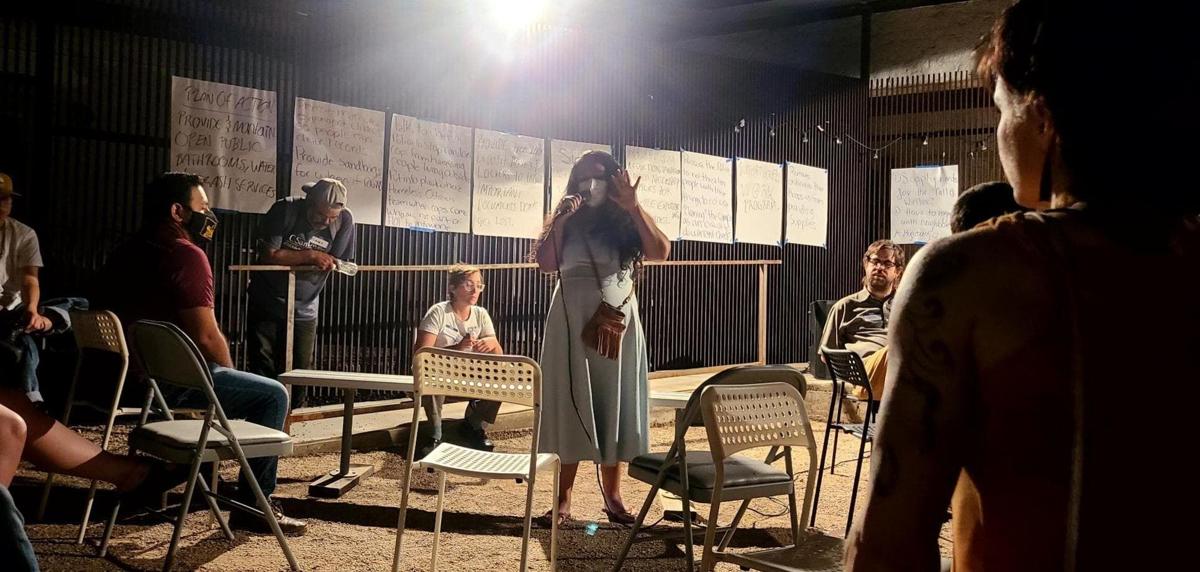A new nonprofit working to address Tucson housing market issues will present a series of classes next month designed for property owners who want to explore equity in landlord-tenant relationships.
The Tucson Alliance for Housing Justice was formed in 2021 in response to the eviction crisis. It is made up of community members and organizations including the Splinter Collective, Tucson Tenants Union, Casa Maria, Tucson for Everyone, Favor Celestial and the Community Food Bank of Southern Arizona.
The group is working to address Tucson's shortage of affordable and accessible housing, prevent people from being displaced , and reduce racial and ethnic inequalities in housing and ownership.
It formed in response to an immediate need, with an unprecedented number of people being forced out of their homes or threatened with eviction. And it continues to work on longer-term, systemic solutions, said Splinter Collective founder and executive director Nat Brewster Nguyen.
The group is working to keep people in their current housing, stop encampment evictions and increase access to housing and related services, including behavioral health and social services, Nguyen said.
Arizona doesn't allow for rent control, but the group says it is looking into ways to change the market.
They're starting with landlords, which is where the classes come in.
Renters are also welcome to attend the classes, which will be held on Mondays and Tuesdays, with participants attending one day a week through the end of the month, said Danya Xena, alliance steering committee member.
She is a co-founder of Justice Movement, which focuses on building custom courses for specific groups. Nguyen is also a co-founder of Justice Movement, which started in 2018.
With a sliding scale fee and guest passes available for people who can't afford to pay, Xena and others hope for a good turnout to the classes. Any funds raised will go back into the alliance and a scholarship fund for future participants, Xena said.
"We have lots of people reaching out who are interested," Xena said. "There's been a shift in the whole culture and thinking about how we engage in housing and ownership and everything related to it."
Alliance policy director Raye Winch said many people who attended the last class were interested in ideas like community and collective ownership. That involves splitting the title with people who live on the property to remove the landlord-tenant relationship and replace it with a shared ownership agreement.
The alliance is working with lawyers to have legal documents and reference materials explaining these and other options available on its website.
The classes also create an opportunity for attendees to meet houseless community members and cross class boundaries to hear personal stories and experiences from people affected by the current housing situation, Nguyen said.
"We're starting to reach out and meet each other and learn it's not so scary and there are ways we can connect and support each other," Nguyen said.






